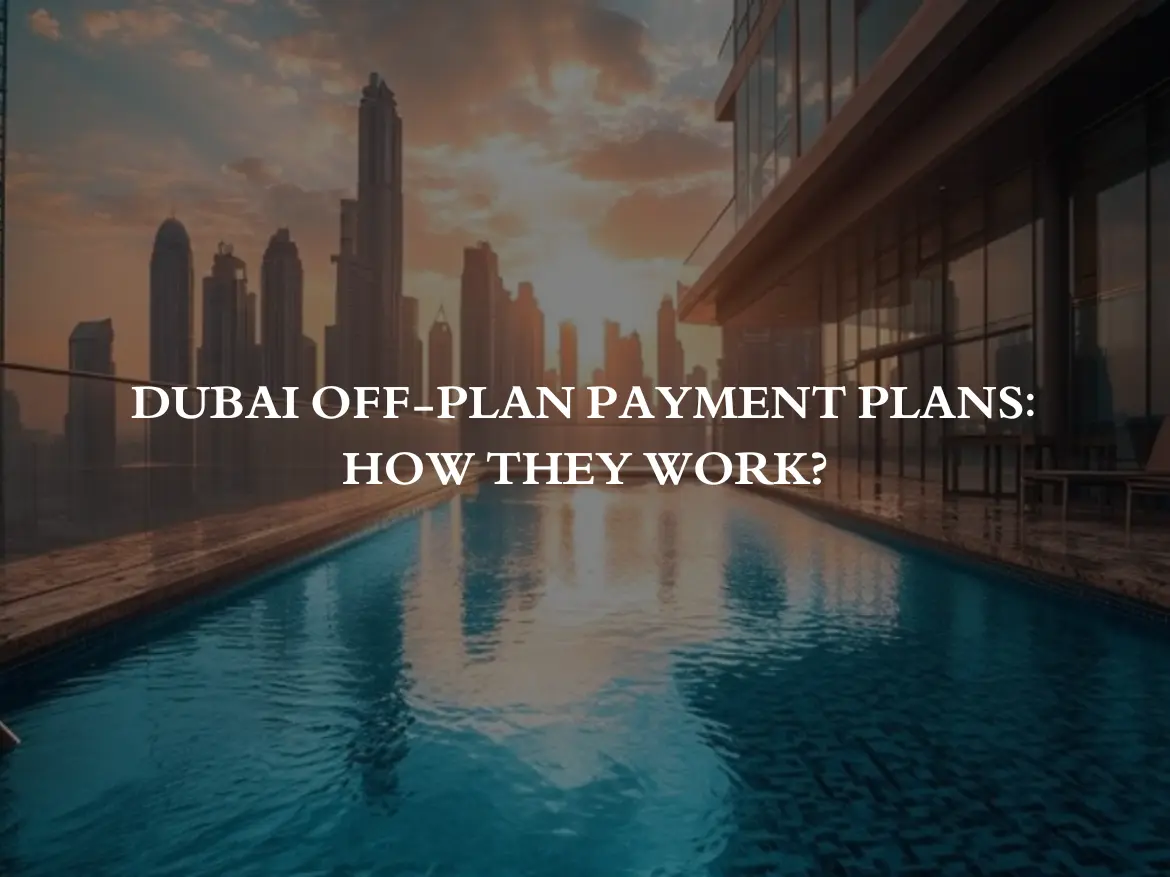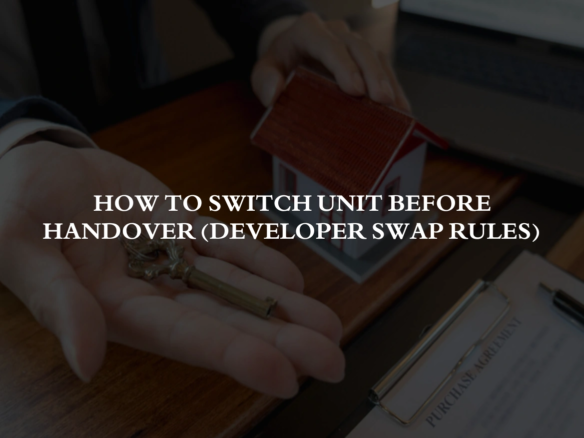Table of Contents
Understanding how dubai real estate payment plan work can be a bit daunting. In this blog, we’re going to break down everything you need to know about payment plans, especially in Dubai. We’ll delve into the most common Dubai Off-Plan Payment Plans structures, the typical costs involved, and how financing works. So, let’s get started!
What Are Dubai Off-Plan Payment Plans?
dubai real estate payment plan are structured payment schedules offered by developers for properties that are not yet completed. These plans allow buyers to pay for the property over a period of time, often easing the financial burden of a lump-sum payment plan property dubai.
The Most Common Payment Plan: 60/40 Structure
In the current Dubai market, the 60/40 payment plan is quite popular. But what does this mean? Essentially, you pay 60% of the total property cost during the construction phase and the remaining 40% upon completion.
Example Breakdown
Let’s say you’re purchasing a property worth 10 million dirhams, and it’s slated to be ready in three years. Here’s how the payment plan property dubai would typically be structured:
- Construction Period: 60% (6 million dirhams)
- Roughly 2 million dirhams per year over three years
- Upon Completion: 40% (4 million dirhams)
Financing the Final Payment
If the idea of paying the final 4 million dirhams in one go is overwhelming, don’t worry. You can finance this final payment through a mortgage. However, it’s important to note that you can’t mortgage a property that’s still under construction.
Mortgage Options for Non-Residents and Residents
- Non-Residents: Typically, you can mortgage up to 50% of the property value, which means you’d need to cover 2 million dirhams out of pocket.
- Residents: You might secure up to 80% of the property value through a mortgage.
How is a Payment Plan Structured?
A typical payment plan structure begins with a down payment, which is usually around 24% of the total property value. This isn’t just a token reservation fee; it’s a significant upfront cost that secures your Sales Purchase Agreement (SPA).
Initial Payment Breakdown
- 24% Down Payment: Often required within the first 30 days
- Initial 10% to show commitment
- Remaining 14% to secure the SPA
Confused about payment plans?
Speak to our experts for a personalised consultation.
Fees Involved in the Process
Dubai Land Department (DLD) Fee
The DLD fee is 4% of the property value. This is not a tax but a fee paid to the Dubai Land Department.
Escrow Account
20% of the payment goes into an escrow account. This account is managed by a third-party bank and ensures that your money is only released to the developer after specific construction milestones are met.
Post-Down Payment Phases
After the initial 24% down payment, the remaining payments are typically spread out over the construction period.
Payment Increments
- First Year: Pay 5% of the property’s total value every three months (totaling 20% for the year)
- Following Years: Payments might be relaxed, with smaller increments of 2-3% every three to six months.
Variations in Payment Plans
While the 60/40 plan is common, there are variations.
Post-Handover Payment Plans
Some developers, especially smaller ones, might offer a post-handover dubai real estate payment plan. These plans could be structured as 70/30, where 70% is paid during construction and 30% after handover.
What the risks are and how to lower them
The blog post talks about the pros of Dubai Off-Plan Payment Plans, but it’s also important to talk about the cons. This section would give potential buyers a balanced view, which would help them make smart decisions. There is a chance that the construction will be delayed, and if that happens, what will happen? There is also a chance that the developer won’t deliver the quality or amenities that were promised, and the property’s value might not go up as expected. The section could also include useful tips on how to lower these risks, like looking into the developer’s past work, making sure they follow RERA and DLD rules, and reading the contract’s sections about delays and project changes.
What RERA and DLD Can Do to Protect Buyers
The blog talks about the Dubai Land Department (DLD) fee, but it would be very helpful to have a more in-depth explanation of what the DLD and the Real Estate Regulatory Agency (RERA) do. This part would talk about how these government groups protect people who buy homes before they are built. It would stress how important the escrow account is (which is required by RERA) and describe how it protects the buyer’s money by making sure it is only given to the developer in stages as the building works are finished. This would give buyers confidence that their investment is safe thanks to strong rules and regulations.
A Look at the Differences Between Off-Plan and Ready Property
To get a fuller picture, it would be helpful to have a section that compares off-plan properties to properties that are already built and ready to move into. This part would list the main differences between the two, such as price, payment options, potential for capital growth, and the ability to move in right away. It could also talk about the pros and cons of each, which would help people decide which one fits their investment goals and budget the best. For instance, it would point out that off-plan properties have lower entry prices and more flexible payment plans, while ready properties can be rented right away and don’t have to worry about construction delays.
ROI and the potential for long-term investments
This blog post is mostly about the payment structure, but it would be great to have a new section about how off-plan properties in Dubai can be a good long-term investment. This would talk about how off-plan properties can give a good return on investment (ROI) through both capital growth and rental income. It could include talking about how to figure out the possible return on investment (ROI), how the location and amenities of a property affect its value, and the chance of selling the property before it’s finished. This part would give a look to the future, which would make the content more appealing to investors.
Larger Developers’ Plans
- Emaar: Generally requires 100% payment during construction.
- Sobha and DAMAC: Transitioning to 80/20 plans, reflecting high demand and their strong reputations.
Key Takeaways
dubai real estate payment plan markets are typically interest-free. The main costs include the 4% DLD fee and small administration fees ranging from 2,000 to 3,000 dirhams. There’s no commission from real estate agents, so your main financial responsibilities are the DLD and admin fees.
Conclusion
Navigating payment plans in the off-plan market can seem complex, but understanding the basic structure and common practices can help you make informed decisions. Each development might have specific plans, so it’s always best to consult with the developer for detailed payment schedules.
FAQ (Frequently Asked Questions)
Missing a average rent studio apartment dubai 2025 can result in penalties or even cancellation of the contract. It’s crucial to adhere to the payment schedule or discuss possible extensions with the developer.
In some cases, yes. Developers might be willing to negotiate the terms, especially if the market is slow or the project needs more investors.
Some developers offer flexible payment schedules, especially smaller developers looking to sell units quickly. Always inquire about available options.
Risks include construction delays, changes in market conditions, and the developer’s financial stability. Conduct thorough research and due diligence before committing.
Ensure that your payments are made to an escrow account and that the developer has a good track record. Consulting with a real estate lawyer can also provide additional security.





Join The Discussion